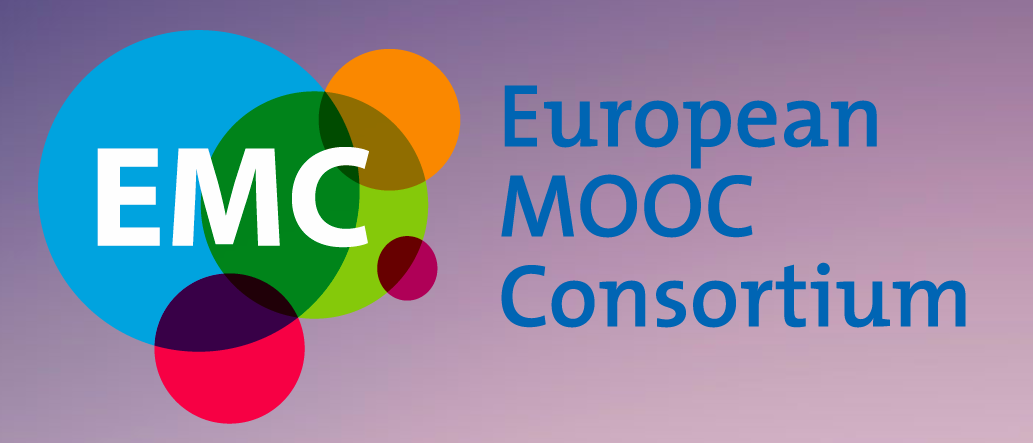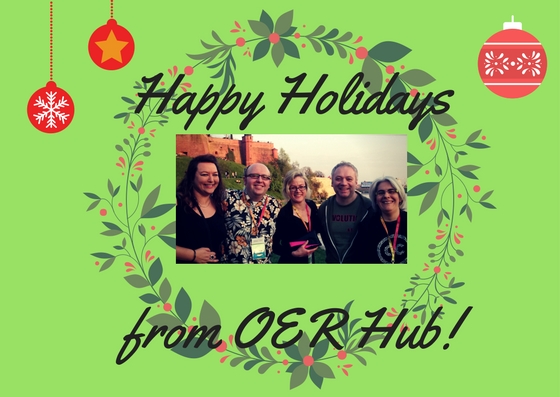
Trainee teachers performing morning prayers. Photo credit: Leigh-Anne Perryman CC-BY-SA
Alan Tait’s Asa Briggs lecture at the 7th Pan-Commonwealth Forum for Open Learning (PCF7) in Abuja, Nigeria last December presented a compelling summary of the role of open education and open educational resources (OER) in international development contexts, referencing development economist and Nobel Laureate Amartya Sen’s ‘capability’ approach, which sees the aims of development as enhancing and supporting individual choice about how to be and what to do. The Three Year Plan of the Commonwealth of Learning (2012, p. 9) is also indebted to Sen’s notion of development as freedom, stating that:
Increasing the freedoms that men and women enjoy is a definition of development, and greater freedom empowers people to be more effective agents of development.
The Commonwealth of Learning makes clear links between increasing individual freedom through development and the use of OER as do Glennie, Harley and Butcher (2012, p. 4), who observe that ‘much of the OER impulse is instrumental, aimed specifically at overcoming deficits’.
The potential of open educational resources to contribute to the removal of ‘unfreedoms’ (to borrow, once again, from Sen) such as poverty, limited economic opportunity, inadequate education and access to knowledge, deficient health care, and oppression was at the heart of Alan Tait’s lecture, which showcased three international development-focused OER projects in which The Open University (UK) is a partner – TESSA, English in Action and TESS-India.
For over a year I’ve been collaborating with the TESS-India project team to research the potential impact of OER within India’s teacher education system, latterly in connection with an OER Research Hub Fellowship. In one of my first posts for this blog I outlined the background informing TESS-India’s aim to:
Use OER in reducing pressure on teacher education institutions, enabling them to deliver quality teacher training, at scale and speed, to both teachers in training and teachers in the classroom [and]…to create the first and biggest network of freely available, high quality, teacher education resources in India, co-written by UK and Indian academic experts and available both in print and online.
I pointed out that India suffers from a 1.3 million shortfall of teachers and that educational standards have been falling in recent years, as reported in the Annual Status of Education Report (ASER). The latest report, covering 2013, shows this trend continuing, leading to The Deccan Herald pessimistically observing that ‘ASER has become a ritual exercise bringing the same disturbing but worsening news’.
Since making my early blog post about TESS-India my research with the project has comprised two distinct phases, with a third phase planned for the remainder of 2014.
Phase 1
The initial research phase, conducted in the first half of 2013, involved my visiting teacher training colleges in Uttar Pradesh, India to conduct baseline interviews exploring teacher educators’ and trainee teachers’ views on the challenges that they face as educators and on the potential of OER to minimise those challenges. It became clear during my visit that OER are not an easily implemented solution to the shortage of teachers in India, nor to India’s falling educational standards. For example, ICT facilities are limited in many teacher training colleges, as are teacher-educators’ ICT skills and their motivation to use ICT beyond social applications. There’s more detail about this phase of my research in these slides for Open Education 2013 and in the paper I presented at PCF7.

Teaching resources created by trainee teachers in Uttar Pradesh. Photo credit: Leigh-Anne Perryman CC-BY-SA
Phase 2
The second phase of my TESS-India research has involved my collaborating with TESS-India Technical Director Tim Seal, Research Associate Alison Hemmings-Buckler and Senior Academic Shankar Musafir in researching the process of localising the OER produced by the project. Way back in 2005, OER localisation – adaptation of resources to meet the particular needs of end-users, especially those in the developing world – was identified by David Wiley as crucial to achieving the aims of the open education movement:
What is the future of open education? Where is it going? I think there is only one answer: localisation.
OER localisation is directly related to the OER Research Hub’s hypothesis on educational inclusion – “open education models lead to more equitable access to education, serving a broader base of learners than traditional education” – as without localisation, resources produced outside the country in which they are to be delivered can appear irrelevant and inaccessible to end-users. Tiffany Ivins (2012, p. 219) confirms that ‘localization unlocks the power of OER’ adding that:
Localization must involve locals; a community of practice bolsters localization; localization must be done in appropriate formats; and effective localization is directly proportional to understanding local contexts.
However, with a few exceptions, in the 9 years since David Wiley’s statement above little work has been done investigating how best to localise OER. A consequent danger, identified by Bateman et al (2012: 3), is the tendency for the OER movement to be seen as (and see itself as) ‘benevolent, developed country ‘providers’ of OER’ as distinct from ‘passive, developing country ‘users’ of them’. Indeed, Miyagawa (2005) warns that by ignoring such concerns we may see a global information society resembling ‘a map of the world in the 16th century composed of those that colonize and those that are colonized’.
OER localisation can include changing the language, pedagogical approach, content, style, imagery, and the religious, cultural and geographical references featured in resources. The localisation of the TESS-India Teacher Development Units (TDUs) and Leadership Development Units (LDUs) covers all of these elements and involves adapting resources to be effective in several culturally and linguistically diverse Indian states. After employing State Localisation Experts for each state the TESS-India project team conducted workshops in which localisation training was provided. To date, two localisation workshops have been held, one in Madhya Pradesh and a combined workshop for Uttar Pradesh and Bihar held in Lucknow (UP). This stage of localisation focused on three subsets of the TESS-India TDUs: elementary English, elementary science and secondary maths.
The OER Research Hub research around the TESS-India localisation process has addressed three main questions:
(1) What are the challenges of localising OER?
(2) In what ways does the context in which localisation occurs, and the perceptions of the people doing the localisation, affect the process?
(3) How can communities of users best be supported when localising OER?
Participant observation at the localisation workshops has allowed for detailed examination of the ways in which those tasked with localising the resources worked together to identify aspects of the TESS-India OER that needed to be adapted to meet local needs, and the support required for this task. Additional data has been collected through workshop reports and interviews with workshop participants, including two facilitators and three practitioners.
The Phase 2 findings
The research into the localisation process continues. However, a number of findings have already emerged, notably:
- The need for translation of resources from English into Hindi to be conducted by people with a knowledge of context and pedagogy, in the interests of accuracy.
- The impact on the localisation process of localisers’ inexperience in typing in Hindi.
- The impact of localisers’ common experience as writers of textbooks for use in the Indian education system, which are of a more formal style than the TESS-India materials and which prioritise subject matter over pedagogy. (A consequence of this shared experience was that many localisers (a) wanted to add subject-specific content to the TESS-India TDUs, which are more focused on pedagogy and practice than on delivering subject-specific knowledge; and (b) felt that the conversational style of the TDUs should be changed to be more formal.)
- Localisers’ lack of experience in online learning and difficulty in imagining how the TESS-India OER would work as online resources.
- The need for extended support for localisers after the initial workshops, allowing them to reflect on the process and then reconvene to discuss the changes they feel are needed.
- The need for extended training for localisers in the pedagogical approach featured in the TESS-India resources.

TESS-India localisation workshop. Photo credit TESS-India CC-BY-SA
While the overriding attitude to the TESS-India OER amongst localisers has been positive and enthusiastic this has been accompanied by at least some resistance to the implementation in India of learning resources perceived as ‘UK exports’. Collaborative OER Research Hub and TESS-India papers to be presented at this year’s OER14 and OCWC conferences explore in more detail how a one-directional flow of knowledge and resources can be replaced by a knowledge partnership approach during the localisation process and beyond. In addition, the papers discuss the complex dynamic between institutions imposing restrictions on the localisation process in the interests of quality control, and their achieving true openness that accords with resources’ status as OER
Phase 3
The final stage of the TESS-India/OERRH collaborative research, commencing in early autumn 2014, will investigate the impact of the resources once they are in use in India’s teacher education colleges and schools. A large-scale qualitative study will collect attitudinal and practice-based evidence from students, teachers, head teachers, teacher educators and trainee teachers, looking at whether the use of TESS-India’s OER:
- Has an impact on teachers’ practice in the classroom and the extent to which they reflect on their pedagogical practice.
- Allows for greater numbers of teachers to be trained.
- Has an impact on educational standards and student retention in India’s schools.
Again, this research phase will also explore the overarching question of whether the use of OER can result in more equitable access to education and, more broadly, can contribute to the removal of unfreedoms ‘that leave people with little choice and little opportunity of exercising their reasoned agency’ (Sen, 1999, p. xii).
References
Miyagawa, S. (2005) Presentation on MIT OpenCourseWare at the 16-17 May 2005 Tokyo Ubiquitous Network Conference.
Sen, A. 1999. Development As Freedom. Oxford: Oxford University Press
[Reblogged from http://artofoer.wordpress.com/2014/04/06/248/]






[…] Removing ‘unfreedoms’ through OER: TESS-India research update (oerresearchhub.org) […]